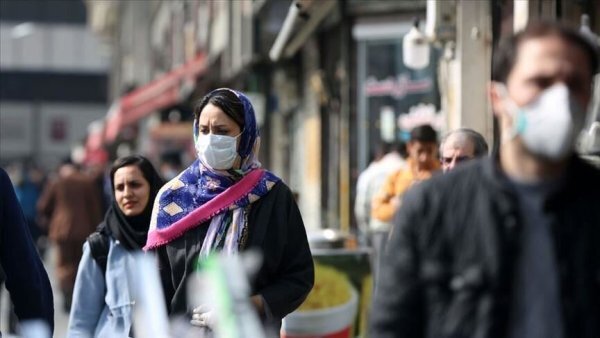Sanctions on Iran to affect all countries in COVID-19 battle

TEHRAN – U.S. sanctions against Iran, which have led to a lack of prevention and treatment equipment, will affect all other countries as well, head of the Medical Council has stated.
U.S. sanctions are oppression that has made COVID-19 fight harder in Iran, IRNA quoted Mohammad Reza Zafarghandi as saying on Thursday.
“I wrote in a letter to the World Health Organization Director-General [Tedros Adhanom] and the United Nations Secretary-General [Antonio Guterres] that this oppression against Iran extends to other countries as well because the coronavirus knows no borders and when there are not enough facilities for prevention and treatment in Iran, the virus spreads and this is oppression on humanity.”
Although food and medicine were claimed to be exempted from the U.S. sanctions, financial and banking sanctions have limited the life-saving medicine trade which harshly targeted the patients suffering from rare diseases.
Moreover, fears of falling afoul of Washington have restricted exports to Iran.
Exemptions for humanitarian trade (such as food, medicine, and medical equipment) have not been effective in protecting Iranian patients from access to imported medicine, such as the bandages used for patients suffering Epidermolysis Bullosa (EB), a rare genetic disease that causes painful blistering of the skin.
With the return of sanctions, over a year (May 2018-May 2019), 15 patients covered by EB Health House lost their lives.
Companies exclusively producing medicine for Mucopolysaccharidosis (MPS) patients, such as BioMarin Pharmaceutical Inc. of the U.S. and a South Korean company, have refused to export these drugs to Iran, threatening the lives of 335 patients in Iran.
However, Switzerland delivered 180,000 packages of medicine needed for cancer patients and transplant operations to Iran in February in an attempt to facilitate humanitarian trade following the implementation of the Swiss payment mechanism.
The government of the Republic of Korea also started close consultations with the United States and Iran in order to facilitate humanitarian trade with Iran with won-currency deposits made by the Central Bank of Iran (CBI) at banks in the ROK. As a result of such consultations, the ROK government resumed humanitarian trade with Iran on April 6, which was suspended after the U.S. tightened sanctions on the CBI in September 2019.
So, South Korea sent by air a shipment of medical supplies and medicine worth $500,000 needed for genetic diseases to Iran on May 29, which will mark the first case of shipment of goods for the recently resumed humanitarian trade and is expected to be followed by exports of medicine and medical equipment worth about 2 million U.S. dollars in June.
Building on the resumption of exports of humanitarian items, the ROK government will continue consultations with the U.S. and Iran on ways to broaden the scope of trade items to include not only medicine and medical equipment, which are currently the main trade items, but also foods and agricultural products, according to the Relief Web website.
The number of people diagnosed with coronavirus in Iran reached 338,825 on Friday, of whom 19,331 have died and 293,811 recovered so far. Over the past 24 hours, 2,501 new cases of people having the virus have been identified, and 169 died, Sima Sadat Lari ministry of health’s spokesman said.
Currently, 3,956 patients with coronavirus are in critical condition, she added.
FB/MG
Leave a Comment